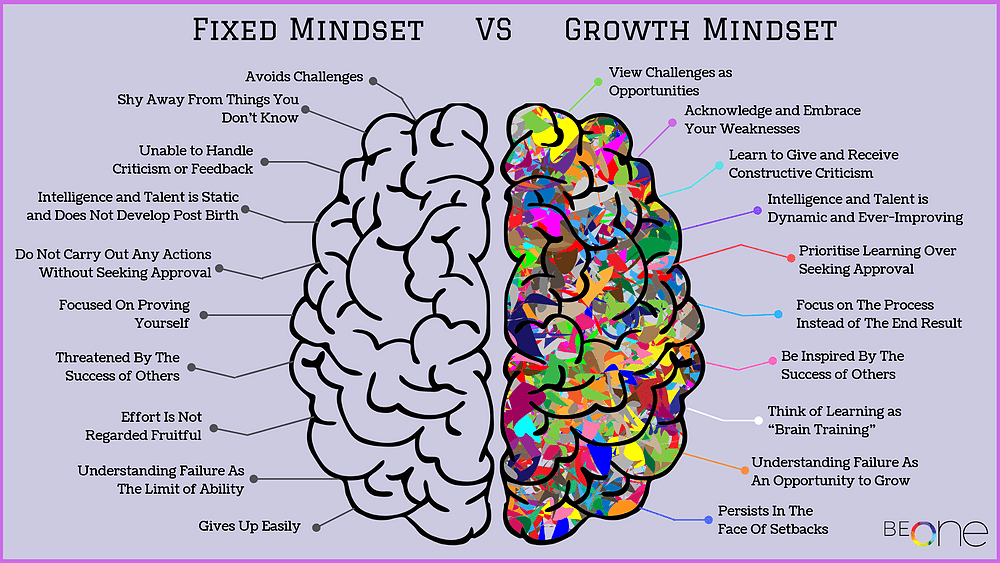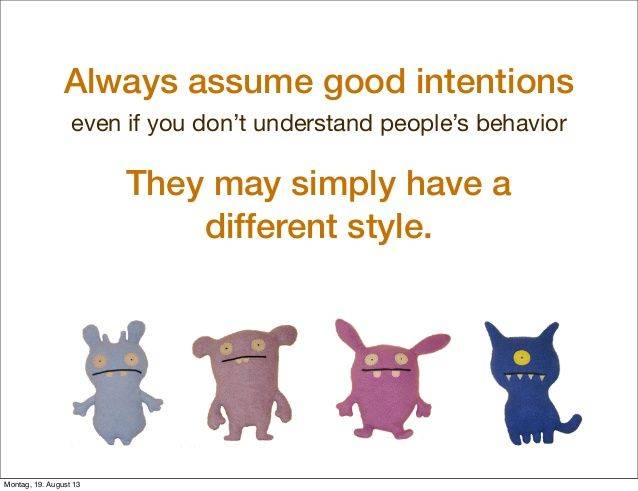Expect more from others – The Pygmalion effect
When I was a people manager I struggled at setting the right level of goals. For myself, I would set incredibly difficult goals, and then throw everything I had into achieving them. But when it came to my direct reports, I was all over the board. Some people I really trusted, so I set lofty goals for them as well. But there were others that I believed were underperformers, and for them I would set easier goals. I would justify it to myself by saying the talented people needed to stretch themselves further, while the underperformers needed to prove themselves on simpler tasks.
Not surprisingly, most of the time my direct reports would prove me right. The people I believed were stronger and gave more responsibility to were the ones who would deliver the best results. I believed I was being fair to the under performers by not expecting something from them I didn’t believe they could deliver. What I never realized was that research has also shown the opposite; people will deliver results based on how they are treated.
I came across this study in the book “The Science of Likeability: 27 Studies to Master Charisma, Attract Friends, Captivate People, and Take Advantage of Human Psychology” by Patrick King. I have to give credit to King, because most research articles can be quite boring to read and the most interesting ones are the hardest to find. But King was able to pull together some of the most interesting articles, and write about them in an engaging and human manner. You don’t need to be a psychologist to understand his key points.
Expect more from others – The Pygmalion effect
People are shaped by who we believe they are.

The study of how expectations can lead to people living up to those expectations started in the 60s. Robert Rosenthal and Lenore Jacobson wanted to look at how teacher expectations could impact student results. Students in a California elementary school were given IQ tests before the start of a school year, as a baseline to track performance.
When the students were assigned to classes, the teachers were told some of the ‘results’ of the IQ test. Specifically, the researchers would identify 20% of the students in the class as gifted and having extremely high IQs. What the teachers didn’t know was that being identified as gifted was random. Some of the ‘gifted’ students were actually smart, some were just average, and others were below average. But the key thing was that the teacher believed that the “gifted” kids were actually gifted.
At the end of the year, all of the students complete another IQ test. What they found was that the ‘gifted’ students by far had the largest increases in IQ. Even though they had randomly spread intelligence levels, the ‘gifted’ students actually lived up to their teacher’s expectation of them being smarter. Think about that for a second. The students didn’t know their IQ levels. It was only the teacher’s that saw the child as smart. But having someone believe they were smarter than their classmates, actually led the children to become smarter than their classmates.
Expect more from others – The Pygmalion effect
What’s at the root of this phenomenon?

This phenomenon is called the Pygmalion effect, named after the Greek myth of Pygmalion, a sculptor who fell in love with his statue, and because of that love the statue became a real woman. At the root of the Pygmalion effect is that our beliefs about someone impact how we treat them. While we want to believe that we treat people equally, and don’t play favorites. The reality is our thoughts about sometime will cause us to treat them differently.
Consider this simple thought experiment. You have two direct reports doing the same exact job. One who you consider a high performer and really smart. The other you think does not meet your expectations of the role. Now imagine you have assigned them similar projects, and both have come to you saying they will need more time to complete the project. How would you react to each of the requests for more time?
If you are like me, I would probably be more forgiving and understanding of the high performer than I would be about the under performer. I would probably think the under performer was just being lazy, and not take their request seriously. While I would automatically assume the high performer had carefully considered the needs of the project, and I would trust their judgement. Even if it is the same task and same request, my viewpoints of the people will cause me to treat them differently.
And based on how I treat them differently, my two reports will start thinking about themselves differently. The high performer will feel my trust, and become even more engaged with the team and the task. She knows that I listen to her judgement, so she takes ownership of the task, and delivers the results. On the flip side, the underperformer feels like I don’t care about his opinion, and feels like I am giving him impossible tasks. And so, he disengages. Why would he even try if he felt setup to fail?
Expect more from others – The Pygmalion effect
How to use the Pygmalion effect in your team
Using the Pygmalion effect to your advantage in your team will be hard, but I know that you can do it. I recommend doing the following things:
Expect more from others – The Pygmalion effect
1) Have a growth mindset and not a fixed mindset

In 2007, Dr. Carol Dweck published “Mindset”, which described how people either have fixed mindsets or growth mindsets. People with a fixed mindset are those people who believe their abilities and the abilities of others are set in stone. On the flip side, people with a growth mindset believe that people can develop abilities and change behaviors.
If you want to be a good people manager, or even just a good colleague, then you need to believe that people can grow and develop. If you think the underperforming colleague will always be under performing, then it will become a self-fulfilling prophecy. But if you believe someone can change, then you are more willing to invest in the underperforming person.
Expect more from others – The Pygmalion effect
2) Assume best intent

It is so easy to use our history with someone to prejudge a person’s actions. I know I struggled with this when I led a team, and even now, when I interact with people that annoy me. Whatever the other person does, I see it in the worst light. But because of the Pygmalion effect, that only increases the likelihood that it becomes a self-fulfilling prophecy.
A coach gave me a tool to assume the best intent in other people. When I was dealing with a particularly annoying colleague, my coach asked me, “Do you think this person is presenting his ideas as a way to bring down the company?” I reflected and replied, “No.” Then he asked me, “Do you think he is trying to cause your team to fail?” Again, I said, “No.” After a few more questions in this pattern, he asked me, “Is there a possibility that he sees something you don’t, and that’s why he is putting this idea forward?” I begrudgingly answered, “Yes.” In that instant I became curious about the person I was prejudging, and wanted to understand his perspective more.
Expect more from others – The Pygmalion effect
3) Set stretching goals

People will rise or sink to meet your expectations, so it is critical to have high expectations for everyone. But at the same time, it is critical to recognize that people are different. You can’t hold everyone to the same bar you hold your superstar performers. Instead, you should work with your people to set goals that stretch them individually.
When setting stretching goals, I like to think about sports. When I go out for a run, I am not setting an impossible goal of running a 5K at a world record pace, nor do I set it too easy to run a 5K in 4 hours. Instead, I aim to stretch myself, and push past my current performance boundary. When it comes to interacting with your team members, believe each person has the potential to be better than they are, and then hold that person accountable to reach that better version of themselves.
By having a growth mindset, assuming best intent in their interactions, and setting stretching goals, you will start treating people as a better version of themselves, thereby helping them become that better version.
Expect more from others – The Pygmalion effect
Help a star shine brighter

The Pygmalion effect is something that every manager needs to understand and leverage with their teams. And if we reflect upon the best managers from our past, we will most likely realize that they were already doing this unconsciously. From my personal experience, I had a very special manager in my career. This manager saw something in me that I did not see at the time, and he inspired me to achieve greater heights. I was considered a top talent by the company, and took over a significant part of the business under his guidance.
But then he got promoted, and I got stuck with the worst manager I have ever experienced. He clearly thought I wasn’t a fit for my job, even though I was a ‘top talent’ in the company. Over the years, he continued to whittle away at my confidence, and my love of the job. Eventually my performance suffered, and I quit, vowing never to work for him or the company again.
How we think about people can shape how they act and behave. One boss thought I was a star, and for him I ended up shining bright. The other thought I was an underperformer, and eventually I did underperform. Think about that the next time you are talking about performance with your people.
Expect more from others – The Pygmalion effect

Leave a Reply